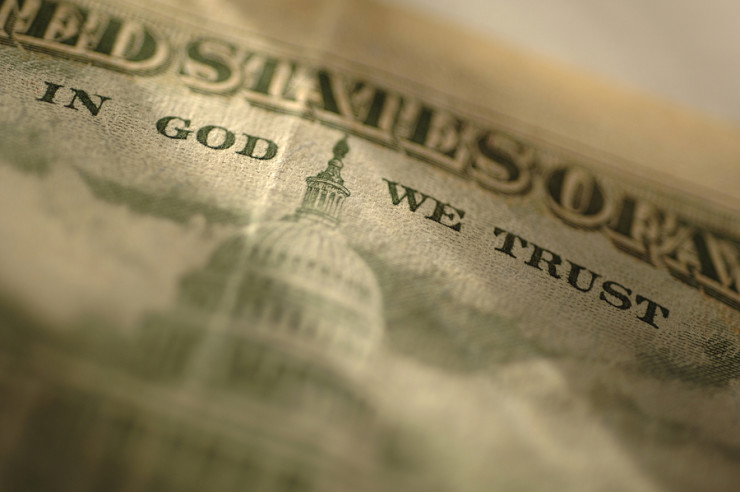12 Awesome Money-Saving Apps And Websites
In the last month, I’ve bought movie tickets for half price via Groupon, ordered dirt-cheap electronics accessories on Amazon and found a real bargain for my next vacation thanks to Priceline (if you’ve never experienced the thrill of naming your own price, you’re in for a treat).
While all of those sites are fantastic money-savers, chances are you’re already quite familiar with them.
Below are 10 other money-saving sites and apps that are sometimes overlooked but just as worthy of recognition. Incorporate a few of them into your daily routine, and don’t be surprised if you save hundreds of dollars in just a few months. When you’re done, explore below for other Christian debt management apps and tools offered through our partnership with SuperMoney.
Cartwheel – This is a discount program just launched by Target last May. I started using the app in the fall, and I’ve now saved $121.62 on items I was going to buy anyway. You create a free account, select the deals you like, and scan your unique coupon barcode once you get to the register. One of my new favorite things is explaining Cartwheel to the people standing in line with me. Many have never heard of it and download the app on the spot.
RedLaser – Have you ever found yourself standing in the store, staring at a product that’s on sale and wondering if it’s really the best price out there? Wonder no more with apps like RedLaser. Once you download the app, you can scan barcodes with your phone or enter the name of a particular product, and RedLaser will let you know if you can get it cheaper online or across the street.
Retailmenot – I never make an online purchase without first taking a quick trip to Retailmenot.com. This site allows you to search for coupon codes and printable coupons for your favorite retailers.
Ebates – This awesome site allows you to get cash back for online purchases. According to Ebates, its members have earned more than $250 million to date. One of my savings-savvy relatives has received $555 since she started using the site a couple of years ago. You can get serious cash back (sometimes 20% or more) when you use Ebates to make purchases from Amazon, Walmart, hotels.com, and tons of other retailers and websites.
Airfarewatchdog – This site has real people monitoring flight prices across the U.S. and beyond. You can sign up for email alerts for specific routes, and Airfarewatchdog will alert you when the fares drop significantly. Last week, the site sent me an alert for one of the routes I was watching. I booked a nonstop round trip flight for $89 including taxes and fees.
LivingSocial – This discount site sells everything from haircuts to bowling passes to vacation packages for 50% off or more. Just select your location, then browse the offers or search for something specific.
Restaurant.com – You can save 50% on eating out by buying a gift certificate through Restaurant.com. To save even more money, sign up for email alerts and keep an eye out for the site’s extreme deals—like $3 for $25 worth of gift certificates. Just remember to read the details of each deal carefully. Many restaurants require you to spend a minimum amount, and they generally can’t be used towards tax or gratuity. Also, check the restaurant’s reviews before you buy.
ThredUP –ThredUP is basically a giant, online consignment store. The way it works is pretty cool—you order a bag, fill it up with used women’s or children’s clothing (in good condition), and drop it in the mail. The postage is already paid. Then the ThredUP team goes through the clothing and pays you up to 40% of its resale value. They have an online calculator to help you figure out what your clothing is worth before you send it in. You can get your money via PayPal or receive shopping credit to buy deeply discounted clothes through the site. Oh, and any items that aren’t accepted are donated to charity or recycled.
MoneySavingMom –This is a great catch-all savings site that covers everything from extreme couponing to giveaways to weekly grocery store specials. The woman behind the site is a mother of three who actually figured out how to live off a $35/week grocery budget in order to keep the family from going into debt when her husband went to law school. She knows what she’s doing.
Airbnb – This is an up-and-coming site that allows you to rent space in more than 30,000 cities around the world. You can rent anything from a tree house in Washington ($40/night) to a castle in France ($170/night). Whether you need a room or an entire house, there’s probably something within your price range. You can also use Airbnb to make some extra money by listing your home or spare bedroom.
Other Christian Debt Management Apps
What better way to manage money, pay off debt, and improve your financial situation than with a handy app or budgeting tool? In partnership with SuperMoney, we’re bringing you money management tools designed to help you payoff credit card debt, create a spending plan, and become a whiz at managing money and finances.
Explore the library of apps in the widget below to discover free and premium financial calculators, apps and tools to support your Christian debt relief journey.










 In 2007, just 2 million American TV households didn’t pay for some kind of cable, satellite or phone-based television service. Six short years later,
In 2007, just 2 million American TV households didn’t pay for some kind of cable, satellite or phone-based television service. Six short years later, 
 Some retirement plans have an option that will automatically bump up your contributions little by little each year. It’s a fantastic way to make retirement planning a priority without having to think about it. But if you don’t have an automated option, this is a great time to take a look at the state of your retirement funds.
Some retirement plans have an option that will automatically bump up your contributions little by little each year. It’s a fantastic way to make retirement planning a priority without having to think about it. But if you don’t have an automated option, this is a great time to take a look at the state of your retirement funds.




 If giving up candy for 40 days works for you, keep it up. However, if your Lent sacrifice has become routine and expected—or if you’ve never tried giving something up for Lent—perhaps you should consider doing something a little different this year, like making a sacrifice that hits your wallet more than your waistline.
If giving up candy for 40 days works for you, keep it up. However, if your Lent sacrifice has become routine and expected—or if you’ve never tried giving something up for Lent—perhaps you should consider doing something a little different this year, like making a sacrifice that hits your wallet more than your waistline.